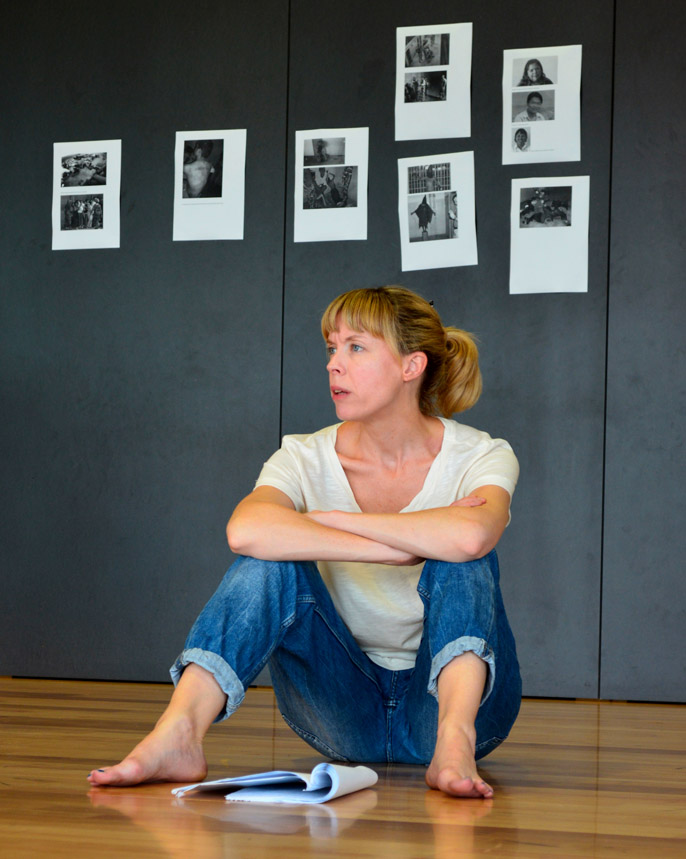Is it possible to make the world a fairer place? “A sympathy for the poor does not change the life of the poor,” the narrator of The Fever tells us toward the end of her 90 minute monologue. “Artists who create works of art that inspire sympathy and good values do not change the life of the poor.” Being forced to confront the question of equality and what we tell ourselves is the inherent injustice of the world, having just had a nice dinner, with a comfortable bed waiting at home, makes sitting on that cushioned theatre seat a little less comfortable.
Our unnamed protagonist is one of the privileged, like us. She becomes gripped by fever as she travels in an impoverished foreign country, where civil war rages outside her bathroom window. Throughout the 90 minutes as her story progresses the speaker unravels, becoming more and more emotionally troubled as she realises that her wealth is only possible because of others’ poverty. If this is the case, is she really the good person that she believes herself to be?
Catrin Aaron is captivating as the narrator. She holds the audience rapt as her story (or is it a confession?) unfolds, with only a wooden chair and a glass of water to accompany her on the bare stage. Wallace Shawn, probably best known to most as Vizzini from The Princess Bride (inconceivable!), originally wrote this play to perform himself. You can hear Shawn in Aaron’s performance, perhaps distinctive because of the richness of the language and the hypnotic rhythm of the prose, but she is utterly convincing as a character, flowing from low-key calm poise to rage, from confusion to self-justification to self-disgust whilst never feeling like this is a showcase of her actorly range.
The irony of watching a play about the injustice of privilege whilst being reminded of how privileged you are you to be watching a play is incredibly powerful, and certainly stays with you as you leave. And put on your expensive jumper. And buy a coffee for the way home. Having a mirror held up to your incredibly lucky life makes you think. It doesn’t change the life of the poor though. ★★★★☆ Deborah Sims


